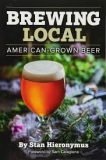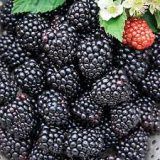Beer Terroir
Much is made these days of local, independent, craft beer. The Brewer’s Association is pushing the Independent Craft Brewer seal, to help educate consumers to not fall victim to the subsidiaries of InBev masquerading as craft breweries. At Intrepid Sojourner, we have happily adopted the seal and will continue to champion independent and craft beer. As a brewery focused on global influences, however, we sometimes struggle with the idea of ‘local.’ Not because we don’t want to source ingredients from local suppliers, or support our local community – quite the opposite. But because some things just aren’t local.

Brewing Local: American Grown Beer
Stan Hieronymus, in his book Brewing Local, offers a more nuanced definition of local beer, and one that I think I can embrace more fully: “Beer from a place.” I often think about beer in the language of wine, so to me, another way to think about this is beer with terroir. The term derives from the Latin word terra which means ‘earth’ or ‘land’ and was initially used by the French to refer to a wine’s place of origin. Three grape clones can be cultivated in three adjacent fields and vinified in the same way, only to produce a product with significant differences in flavor and depth. Things like precipitation, days of sun, mineral content of the soil, soil pH, temperature, humidity, and others, all bear on the wine’s terroir.

Beer is just beginning to gain recognition for terroir. The growing emphasis on craft maltsters, the geographic spread of hop produces, and the increased interest on local adjuncts are all contributing to a deepening understanding of beer terroir. People are beginning to realize that wheat and barley produced in a specific region, or even in a specific field, yield a different depth of flavor than that same wheat or barley grown somewhere else. Breweries are finding that they can incorporate local adjuncts into their beers with unexpected and delightful results. Patrons appreciate that this beer incorporates blackberries from their friend’s farm down the road, and beer aficionados are also aware that these blackberries taste different from blackberries elsewhere.

Gurney’s Black Magic Black Berries
Breweries like Scratch Brewing in Ava, IL and Fonta Flora Brewing in Morgantown, NC have turned foraging for beer ingredients into a viable business. Their flavorful and unique brews are often full of bark, mushrooms, plants, or other local adjuncts. These beers possess a terroir that is unique to the locations in which they are brewed, despite the fact that all of their ingredients might not be local. Brewery supply chains can be large and convoluted, even though the brewery might be micro. Local ingredients can be hard to come by in some cases. Not everyone is fortunate enough to have craft maltsters like Root Shoot Malting and Troubadour Maltings close by, or local yeast labs like Inland Island.

This is why terroir for beer seems to not just be ingredient specific, but brewery specific. One of my criticisms of the Buy Local movement is that it often dismisses the incredible diversity of international products made available to us through an ever-increasing global network. Do you enjoy local California almonds more than those shipped overseas? Remember that almonds originated in the Middle East and Central Asia in the regions from Turkey to Pakistan. Without that global connection, there wouldn’t be local almonds. Furthermore, certain foodstuffs just can’t be grown well, or at all, in high mountain regions like Colorado. Ever tried to purchase a locally grown avocado?

Terroir therefore encompasses so much more than ideas of local; it celebrates beer from a place. Breweries have the opportunity to create their own unique flavor profile through the creative minds of their brewers and their supply chains. It allows us to utilize local influences, as well as organic, historical, and even international. There’s no such thing as locally-grown Turkish Coffee, but I take pride in the fact that we can create a beer from a Turkish place in the Front Range of Colorado, and I celebrate the international network that allows me access to these unique, global ingredients.




Leave a Reply